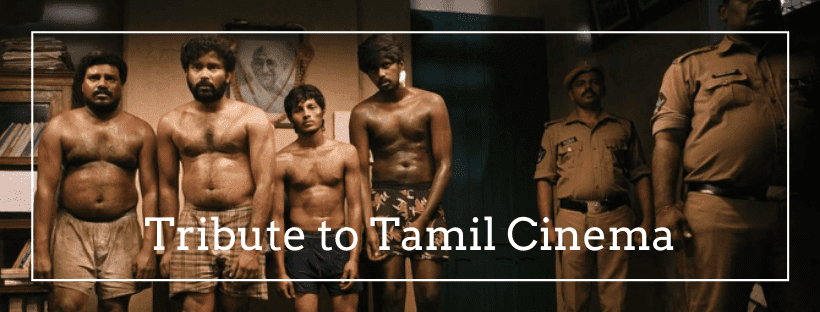Despite receiving mixed reviews, “Master” eventually became one of the highest-grossing Tamil films of all time (in place number 10 actually) and also highest-grossing post-pandemic Tamil film. Furthermore, it was praised for the revival of the theatrical business which has suffered heavy losses due to the pandemic, despite the fact that it was also the fastest Tamil film to be streamed on a digital platform, where the makers teamed up with Amazon Prime Video and premiered after 16 days of theatrical release.
Buy This Title
on Amazon by clicking on the image below
The story actually begins with introducing the villain, starting in Nagercoil, 2002, where a 17-year-old boy named Bhavani witnesses his family get murdered by his father's rivals. He is forced to take the blame and is incarcerated in a juvenile detention facility, where he is tortured mercilessly. As a consequence, he develops a ruthless and brash persona. Years later, Bhavani escapes from the facility and becomes a criminal in the lorry and trade business. Gradually, he becomes a feared gangster, and remains immune from punishment by coercing the inmates of the detention facility to take the blame for his crimes. Creating an enormous empire for himself, he grows on par with his father's former rivals and eventually kills them.
We are next introduced to the protagonist in Chennai, 2019, where John Durairaj “J.D.” , a college lecturer beloved by his students for his student-friendly approach, is struggling with alcoholism and bitter dislike from fellow staff. His only ally among the staff is Charulatha aka Charu, a newly hired lecturer at his college. After he organizes an election in the campus, with the faculty asking him to quit if anything goes awry, he ends up ousted from the school, since, despite the success of the whole procedure that even saw the female candidate winning, the loser's father sent his goons to exact revenge, resulting into chaos in the campus. After the events, J.D. is assigned to a juvenile detention facility for a three-month assignment he does not remember volunteering for. He reluctantly assumes his new position, and is warned by the prison authorities of the rampant drug abuse and violence there, but pays no heed. As he starts to care for the kids there, inevitably he begins walking a path that brings him against Bhavani, whose killing spree and the subsequent blaming of the inmates continues non-stop.
Evidently, Lokesh Kanagaraj follows most of the rules of the masala film. J.D. is definitely a larger than life character, being intelligent and educated enough to be a university professor, but also quite good looking not to mention ridiculously strong, to the point that he can beat scores of enemies by himself. Add to all that being a champion of the weak and an advocate of democracy, women's rights, and justice, and you have a full masala-protagonist package. The same applies to the technical aspects of the movie, with Philomin Raj's editing inducing it with a frantic pace, filled with swooshing cuts and music video aesthetics, which also extend to the fittingly polished cinematography of Sathyan Sooryan, and the overall work done in the SFX. Furthermore, the inevitable dancing and singing moments are here once more, although this time, the music is much more contemporary and universally appealing than is the norm in Tamil films, as is the case with the exuberant duration, that touches the three hour limit once more. Lastly, Vijay as J.D performs as another ‘Tamil idol', fighting, dancing, singing, protecting and being liked by beautiful women, fitting the profile of the larger than life protagonist to the t.
There are, however, a number of elements that make “Master” stand out from the plethora of similar movies coming out of the particular industry. For starters, J.D. is not perfect, he is actually an alcoholic who frequently gets into embarrassing situations, and is saved by his loving students, while his pride eventually takes a toll on his life, as much as his overdrinking does. Add to these that, during the fights, he frequently gets hurt, even if not significantly, and that the people he tries to protect occasionally are not saved at all, and you have a character that is refreshingly not perfect. Furthermore, the movie spends a lot of time presenting the main villain here, who, despite being a cold-blooded killer, is actually quite appealing as a character, both due to his back story, which is if the type that is usually reserved from the protagonist in Tamil crime films, but also due to the imposing acting of Vijay Sethupani as Bhavani, who frequently steals the show from the actual protagonist.
Lastly, the comments here, although excessively presented, are quite interesting through their pointedness, with the ways elections work in India (filled with various types of bribes and violence), the way money affect people, the place of women in society, police brutality, and the issues with the justice system, particularly regarding juveniles, adding much depth to the narrative.
The aforementioned, however, do not mean that the movie is not entertainment oriented, and the action scenes are the biggest testament to the fact, and also the aspect where the production values of the movie find their apogee The one in the college in particular, highlights Kanagaraj ability to direct huge numbers of people simultaneously on screen, while the one-on-one in the end is rather entertaining, through its comic-like aesthetics.
It turns out masala films can sometimes be of quality, even when following all the rules of the genre. “Master” is one of those films

















